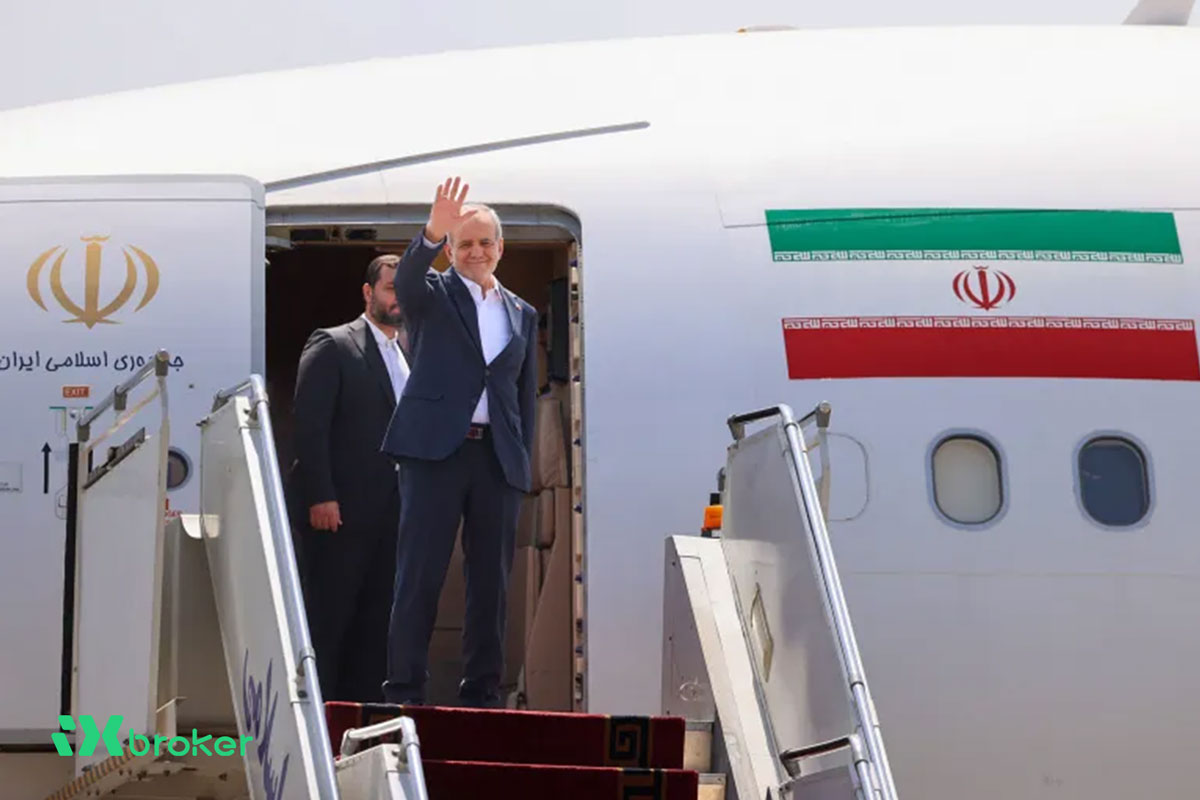Iranian President Masoud Pezeshkian is visiting Armenia for discussions regarding a proposed corridor linking Azerbaijan to its exclave of Nakhchivan, a project that Tehran strongly opposes. This project, part of a U.S.-brokered peace deal, has raised alarm in Iran due to the potential for a U.S. presence in the region, which Tehran views as a security threat.
The corridor, referred to as the “Trump Route for International Peace and Prosperity” (TRIPP), is a key part of the deal signed earlier this month between Armenia and Azerbaijan in Washington. As part of the agreement, the U.S. would gain exclusive developmental rights over the transport route and engage in increased cooperation with both countries in sectors like energy, trade, and technology, including artificial intelligence.
Iran Raises Concerns Over U.S. Influence Near Its Border
Before departing for Yerevan, Pezeshkian voiced his concerns about the presence of American companies in the region, describing it as “worrying.” He indicated that Iran would raise the issue with Armenian officials during his visit. The proposed route, which would pass near the Iranian border, has been met with strong opposition from Tehran. Iranian officials have long expressed fears that the corridor, also known as the Zangezur corridor, would isolate Iran from Armenia and the wider Caucasus region while allowing foreign forces to station close to its borders.
Since the deal was signed on August 8, Iran has intensified its warnings, claiming the project may be part of a broader U.S. strategy to exert influence in the Caucasus region. Iranian Foreign Minister Abbas Araghchi referred to the issue as “sensitive,” emphasizing concerns over potential geopolitical shifts. However, Armenian officials have reassured Iran that no U.S. military forces or security companies will be involved in the project.
While the corridor has been welcomed by countries such as Russia, which shares a strategic alliance with Iran and Armenia, Tehran remains steadfast in its opposition. Ali Akbar Velayati, a senior advisor to Iran’s Supreme Leader, declared that Iran would block the initiative, regardless of Russia’s stance. Velayati criticized Trump’s approach to the Caucasus, likening it to a real estate deal and stating that it would ultimately become a “graveyard” for American forces.
Moscow, while cautious, also supported the deal as a means to promote stability and prosperity in the region. However, like Iran, Russia warned against external interference, asserting that lasting solutions must be developed by the countries of the region themselves.
The proposed corridor comes amid ongoing tensions between Armenia and Azerbaijan, which have fought several wars since the late 1980s over the Nagorno-Karabakh region. In 2023, Azerbaijan regained control of the territory, displacing much of the ethnic Armenian population, which remains a contentious issue in the region.



